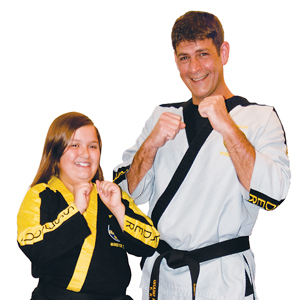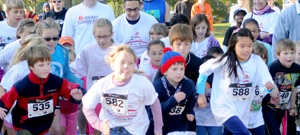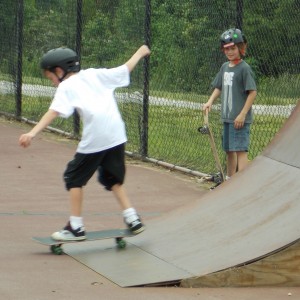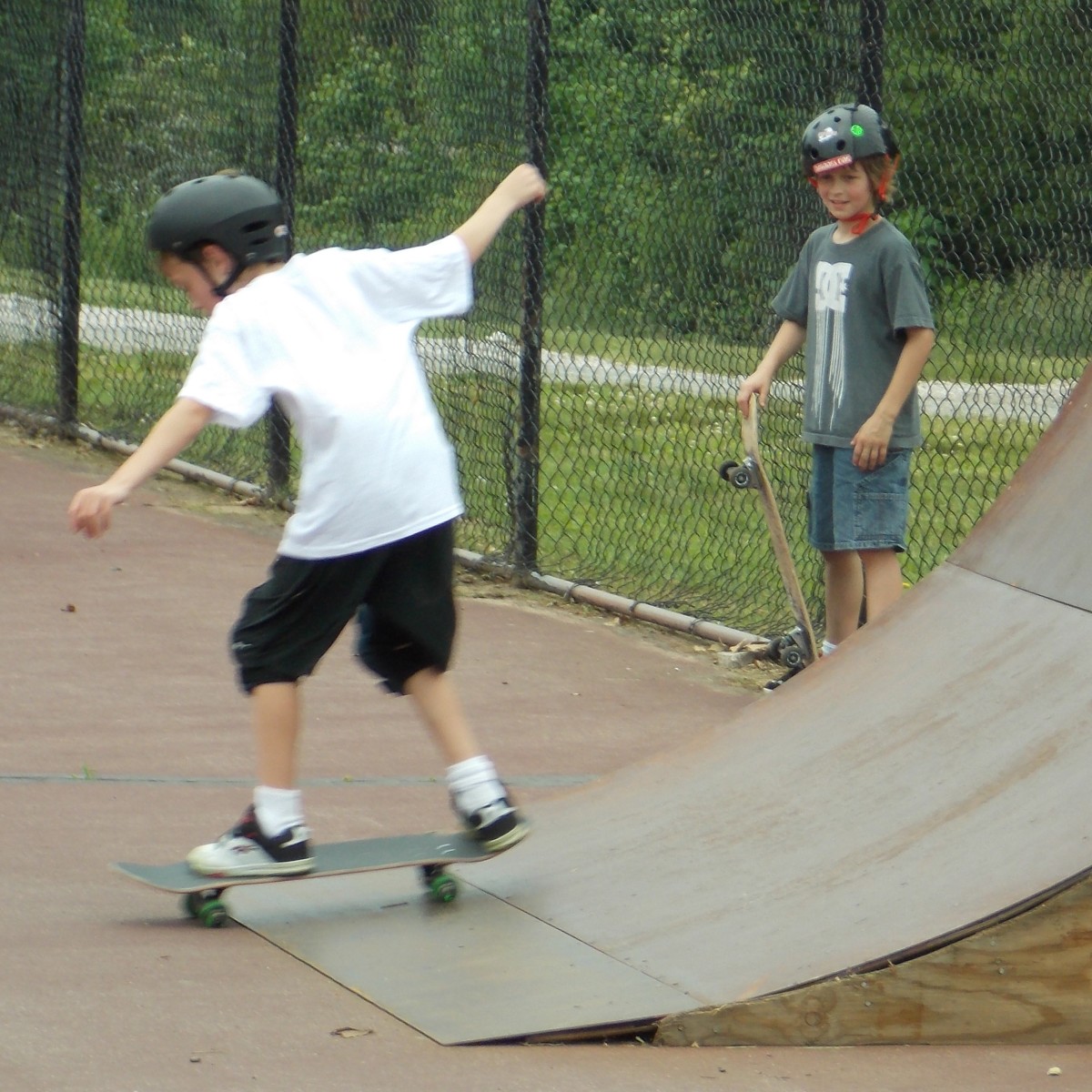 You’re in the stands, watching the child kick at the dirt and stare into space. He’s not very interested in the game going on around him. He spends more time on the bench or sidelines than on the playing field, and might even be happier there. Hey, maybe he’s your child.
You’re in the stands, watching the child kick at the dirt and stare into space. He’s not very interested in the game going on around him. He spends more time on the bench or sidelines than on the playing field, and might even be happier there. Hey, maybe he’s your child.
For most, participation in organized team sports can come as early as preschool, often in the form of soccer, t-ball, or flag football. Yet, as children grow, their interests and abilities may change. Still, the need for our kids to remain physically active has been widely publicized. According to the CDC, the prevalence of obesity among children aged six to eleven rose from 6.5 percent to nearly twenty percent from 1980 to 2008.
Those are daunting statistics. However, it’s not just physical fitness that motivates parents to get kids involved. Jennifer Shively Davis, a licensed professional counselor with Glenside Counseling and Wellness and mom of two, points out, “While children are at a young age, we are looking for experiences that help them learn general athletic skills and how to play with others, keep fit, burn energy, and have fun. Once they have developed a basic understanding of extra-curricular activities, what they learn and how they learn can become more specialized.”
Still, traditional team sports such as basketball, soccer, and football just don’t appeal to all kids. But recognizing a child’s lack of interest or ability can be challenging.
“Sitting on the sidelines when the kids were younger, it was fun to watch the ‘amoeba-ball’ games,” says Lisa, a mother of two. “There seemed to be an even skill level between most kids.”
However, as this evenness dwindled and the kids got older in elementary school, and then started middle school, things started changing. “It’s difficult to watch your child spend most games as the bench warmer in a team sport. But, as long as our kids liked it, we stayed with it,” Lisa says. When it became less fun, she found alternative sports that motivated her children and gave them the confidence all kids need.
Lisa explained, “We signed up for fencing class at Richmond Fencing Club over the summer, and both kids enjoyed it.” She also recommends running as a solid sport for kids. “Our family participated in the Little-Big Triathlon last year [a triathlon where an adult-child pair is a team]. We did mom-daughter versus dad-son and it was getting the family to all participate together which made it such a great experience.”
Debbie, a West End mother with two teenagers, also found that alternative sports appeal to her kids. “Our 14-year-old participates on the Youth Triathlon team at Endorphin Fitness. It teaches technique in swimming, cycling, and running, builds endurance and strength, and focuses on individual improvement in a fun, group setting. Although the program is designed to teach kids how to compete in youth triathlons, it is not required.”
 Running has the added benefit of being relatively easy to do, it doesn’t take much equipment, and the family can do it together. Taekwondo, bowling, archery, and yoga are other alternative programs that can be done individually or as a family. Debbie adds, “We tried taekwondo and horseback riding. Both were good experiences.”
Running has the added benefit of being relatively easy to do, it doesn’t take much equipment, and the family can do it together. Taekwondo, bowling, archery, and yoga are other alternative programs that can be done individually or as a family. Debbie adds, “We tried taekwondo and horseback riding. Both were good experiences.”
Another option is hula hooping. Alicia, mother of two elementary school-aged girls, found her children enjoyed hooping, a sport that incorporates dance, gymnastics, and aerobics. After a class taught by Mechanicsville-based Hoop Active, the girls learned basic tricks and ultimately choreographed an entire dance for their school’s talent show. Alicia believes that hooping not only promotes exercise but also inspires creative thinking. “Even now,” she says, “you can drive by my house on any given day and see one or both girls out with the hoop.”
According to the Sporting Goods Manufacturing Association, there’s a strong correlation between participation in sports and fitness later in life. Skateboarding, once thought of as an extreme sport, is now being taught in hundreds of schools across the country thanks to Skate Pass, a company that initiated the curriculum in 2006. While it’s not yet part of the P.E. curriculum here in Richmond, there are a handful of local skate parks and interest is growing.
 Another extreme sport, BMX or motocross racing on a bike, has also become more popular, helped in part by the televised X Games. West End mom Beth learned this when her son gravitated to BMX after starting middle school. She does caution, however, that kids should always wear the correct equipment, even when they are not in a structured setting. One local program, Richmond BMX, runs from March to October and organizes competitions. Beth says, “I think these alternative sports provide a great way for the kids who are not involved in organized, traditional sports, to stay fit and away from the TV.” She adds, “The opportunity for achievement and reward is just as great, given the number of events which offer prizes and sponsorship at the national level. I support them one hundred percent.”
Another extreme sport, BMX or motocross racing on a bike, has also become more popular, helped in part by the televised X Games. West End mom Beth learned this when her son gravitated to BMX after starting middle school. She does caution, however, that kids should always wear the correct equipment, even when they are not in a structured setting. One local program, Richmond BMX, runs from March to October and organizes competitions. Beth says, “I think these alternative sports provide a great way for the kids who are not involved in organized, traditional sports, to stay fit and away from the TV.” She adds, “The opportunity for achievement and reward is just as great, given the number of events which offer prizes and sponsorship at the national level. I support them one hundred percent.”
Jennifer, who counsels both adolescents and adults, has also seen her kids try alternative sports. “My daughter took Capoeira [an activity that combines martial arts, music, and dance], my son takes ice skating lessons, and they both swim.” Professionally, she has also witnessed the benefits of participation in alternative sports. “I’ve had clients who have managed anger and low self-esteem through sports such as biking and sailing.” Children from large families or competitive environments can also benefit. Jennifer says, “A client of mine felt she followed in the shadow of an older, accomplished sister but found her own niche by participating in cultural dance and learning to play the guitar.” Jennifer mentioned another client was challenged on the soccer field but found a natural inclination on the ice rink and in the chess club. “Not only did the physical and mental challenges of the activities boost these kids’ self-esteem, they also expressed their individuality.”
Ultimately, the many benefits of participating in sports, whether traditional or not, should drive parents to find what interests their children most.




